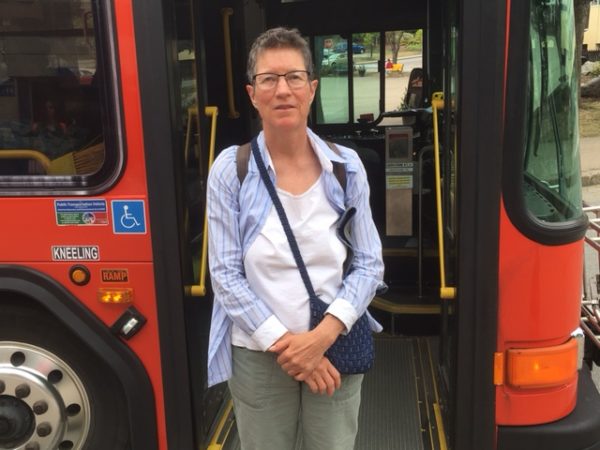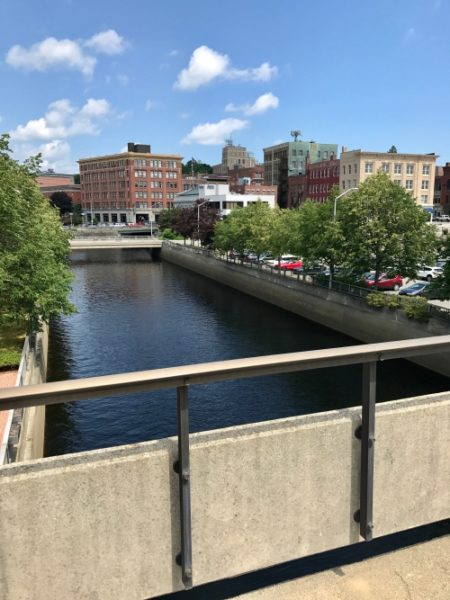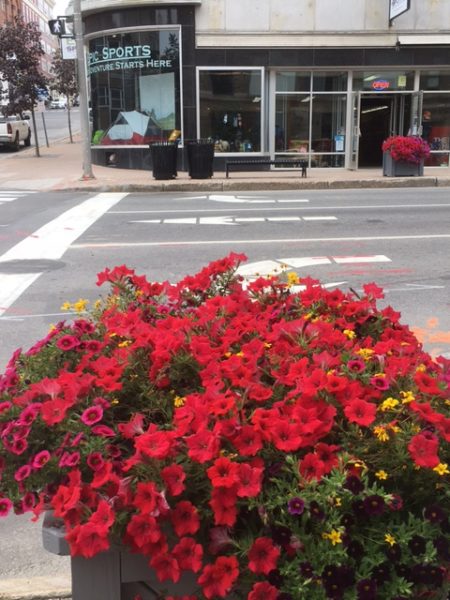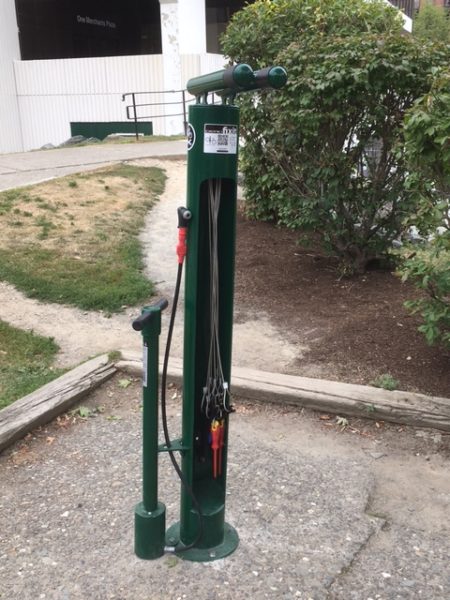Registration now open for the half-day forum September 19th in Bangor
Full Program & Registration Information Here: The Case For Walkability: Health, Economic Development, and Sustainability
By Karen Marysdaughter

In 2015 my partner and I moved into Bangor after 23 years in rural Waldo County. We had a number of reasons for the change, but a primary one was to be less dependent on a car for transportation. Although we don’t live right downtown, we moved to a place within a block of the Community Connector bus line, which I now use regularly, together with some biking and lots of walking. We got rid of one car (we required a car for each of us while living in the country) and immediately cut our driving miles in half.
In my newfound status as a city dweller, I started to read books about the “new urbanism” and the concept of walkability. It was thrilling to learn about cities all over the world that are broadening their definition of transportation; promoting walking, biking, public transit, and public gathering spaces. And even more thrilling to hear about the results – healthier citizens, more vibrant economic activity, and reduced greenhouse gas emissions! It sounded like a winning situation for everyone.

View of the city from the pedestrian bridge
Through a connection with a professor of Economics at the University of Maine, I recruited some students to do a research project on walkability for the City of Bangor, which they presented to the Council’s Infrastructure Committee. The enthusiastic response from City Councillors prompted me to initiate the idea of a forum on walkability – and when I reached out to the Bangor community I found even more enthusiastic supporters. The result: the Walkability Forum in Bangor, which will take place on September 19th in the heart of downtown.
I just finished reading a great book – Happy City by Charles Montgomery. He makes the point that the kinds of infrastructure changes that can improve health, economic development, and environmental sustainability, also happen to make people happier. I see this regularly as a volunteer with the Walking School Bus at Downeast School in Bangor. Once a week I walk to school with a group of K-3 school children. It is a joy to watch and listen to them – we spent one rainy morning last spring collecting worms and talking about why they appear after a rainstorm – and we’re all getting some great exercise.
The Maine Walking School Bus is a program where volunteers walk children to school. A volunteer from this program will be presenting at the Sept 19th Walkability Forum in Bangor.
As Charles Montgomery says, “It helps to compare cities and their transportation systems to forests. Rich, diverse ecosystems are always healthier and more resilient than monocultures. Just as a mixed forest can better survive a beetle infestation than a tree farm consisting of one variety of pine, a city that enables endless combinations of mobility will be much more resilient than a city that organizes itself around just one way of moving.” There are things I really miss about living in the country, but they are offset by the many benefits of city living – and I don’t miss the driving at all!
By Karen Marysdaughter, Co-Coordinator of the Peace & Justice Center of Eastern Maine and a board member with the Downtown Bangor Partnership. Karen will be moderating the ‘Walkability & Sustainability’ Breakout session of the Sept 19th Walkability Forum. Reserve your seat today!
See Full Program & Registration information: The Case For Walkability: Health, Economic Development, and Sustainability

When you walk, you have time to stop and enjoy the flowers!

A public bike stand for simple repairs and pumping up tires in downtown Bangor, supported through a grant from Bangor Greendrinks

